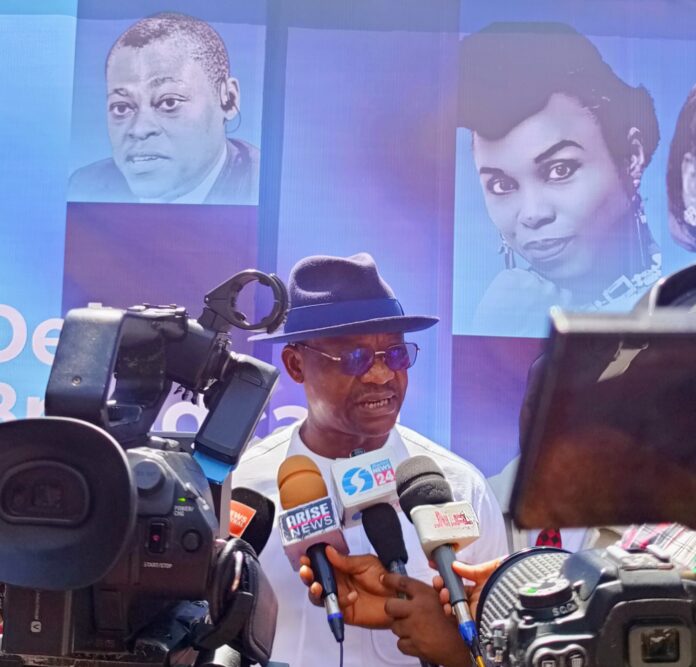The Commissioner for Public Information in Delta State, Mr. Charles Aniagwu, who also serves as the Commissioner for Works on Rural Roads, has raised serious concerns about media censorship, stating that it is negatively affecting the broadcasting industry. He made this known while speaking to journalists at the Delta Broadcast Media Conference 2025 held at Unity Hall, Government House in Asaba.
The event, themed “Broadcast Media: The Pathway to Unlocking Delta’s Possibilities,” brought together media professionals, stakeholders, and government officials to discuss the future of broadcasting in the state.
Mr. Aniagwu emphasized that censorship in its various forms—whether by government, regulatory bodies, or even self-censorship by journalists—is harmful to press freedom and the public’s right to information.
“There are different forms of censorship. Sometimes, government policies prevent people from expressing themselves, even within the law. Other times, regulatory agencies like the Nigeria Broadcasting Commission (NBC) may stop broadcasters from covering topics that are not harmful to society. There’s also self-censorship, where journalists working with government-owned media avoid airing the truth because of fear or pressure,” he explained.
He said that the media must be allowed to function freely while also being guided by ethics, laws, and a sense of responsibility. According to him, Section 22 of the Nigerian Constitution mandates the media to hold government accountable to the people.
“We have a duty to be responsible. The social responsibility theory of the media emphasizes the need to share information that helps society grow. Reports must be checked thoroughly before being made public, especially by trained journalists. That’s the major difference between conventional media and social media,” Aniagwu added.
He pointed out that social media platforms often ignore journalistic standards, spreading information without checks or responsibility, which can lead to misinformation and confusion.
Addressing journalists directly, he said the media must train and retrain their staff to maintain professionalism.
“Some reporters believe that holding a camera gives them power to harass or ambush public officials. That’s wrong. The power given to journalists by the Constitution must be used wisely, not for personal attacks or revenge,” he warned.
Mr. Aniagwu also addressed issues surrounding the Freedom of Information (FOI) Act, particularly the complaints that information requests in Delta State take up to 90 days, rather than the seven days allowed under the federal law.
“We try to make information available, but only when it is complete and verified. For example, if a budget is still being processed and someone asks for it, we can’t release it because it’s not yet official. Sharing it early could lead to the spread of wrong information,” he said.
He likened this to naming an unborn baby, saying, “You don’t name a child that is still in the womb. Only after birth can you officially give it a name. The same goes for government information—it must be ready before being shared.”
In conclusion, the Commissioner called for a balance between media freedom and responsibility, urging journalists to use their platforms to promote truth, accountability, and societal development.



